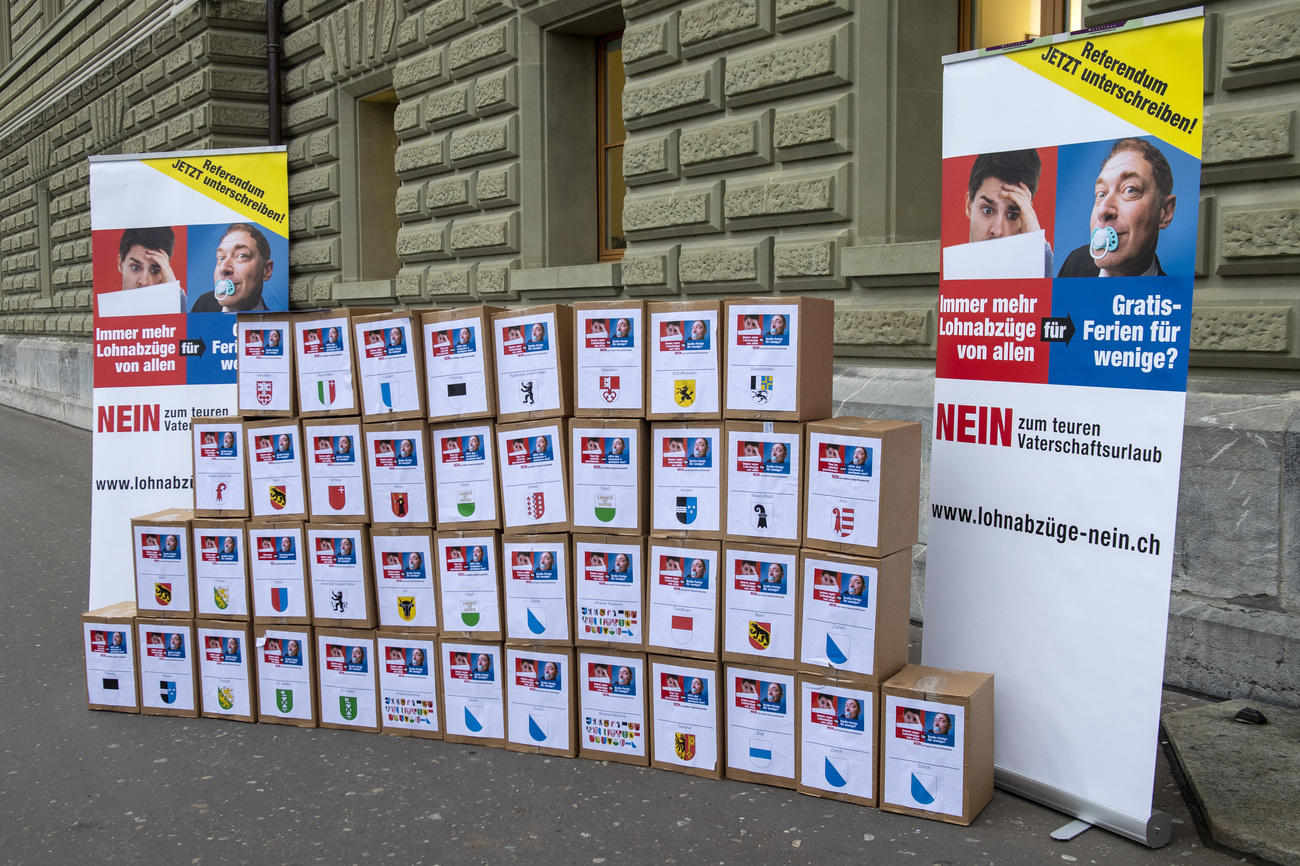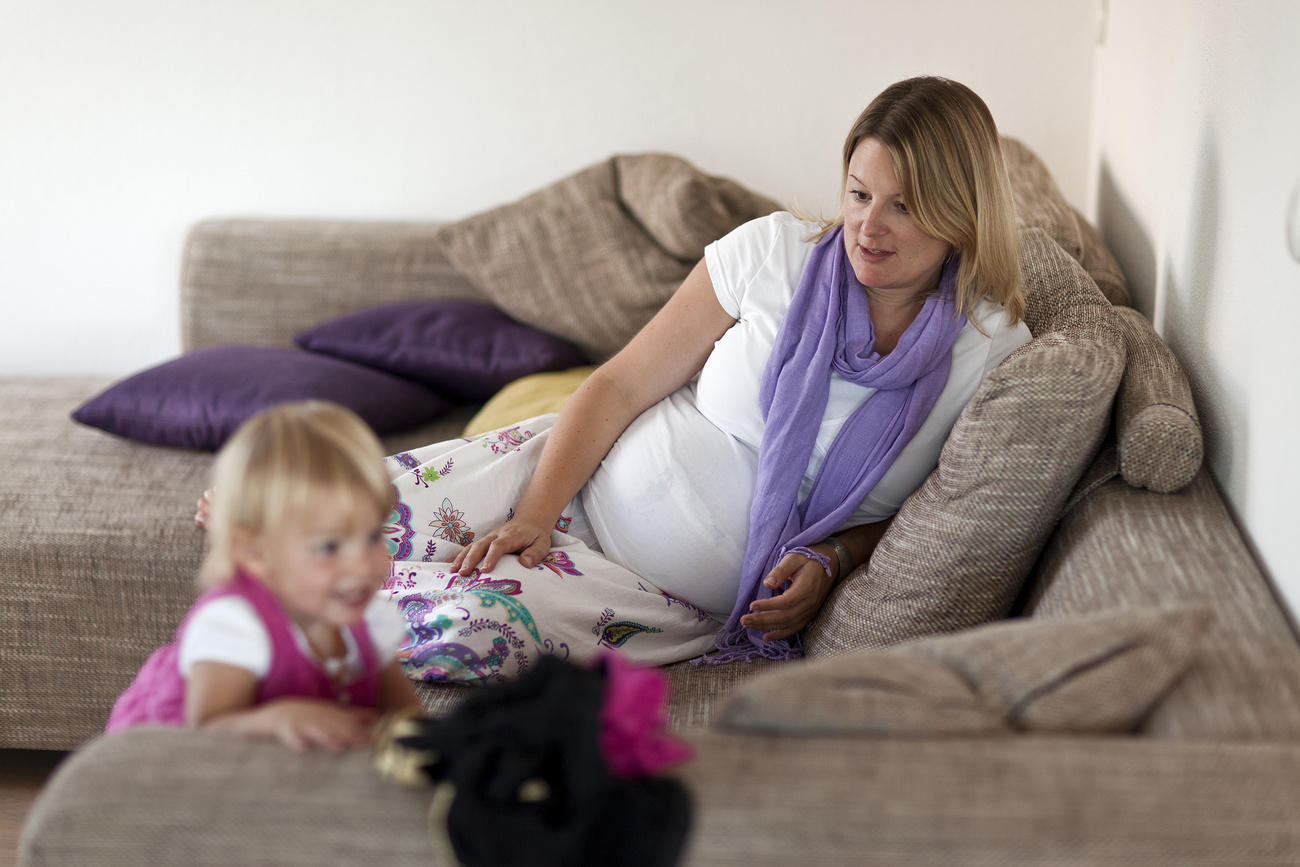
Paternity leave to be challenged in a nationwide vote

Opponents of a statutory two-week paternity in Switzerland have handed in the signatures for a nationwide vote likely later this year.
Campaigners announced on Thursday that they collected just over 55,200 signatures over the past three months to challenge a decision by parliament in favour of paternity leave from last September.
The committeeExternal link led by a parliamentarian from the right-wing Swiss People’s Party said it was confident it could force a referendum despite recent doubts.
Opponents argue the benefits are too expensive for employers and the state should not have to be involved in private family matters.
The cost of the scheme is estimated at CHF229 million ($236 million) annually.
The two-week paternity leave agreed by parliament is a counter-proposal to a people’s initiative by trade unions and other civil society groups, which called for a four-week statutory paternity leave.
There are also plans afoot, supported by left-wing parties in parliament, for an even longer parental leave to be shared between the mother and the father of a newborn.
Currently, in offering zero days of statutory paid paternity leave, Switzerland is bottom of the table of industrialised countries along with the United States, Germany and Japan.
A 14-week maternity leave was introduced in Switzerland 15 years ago following a nationwide vote.
Other referendums
The two-week paternity referendum is the fourth parliamentary decision to be challenged to a public vote this year.
Issues as diverse as tax breaks for child benefits, the introduction of an digital identity for internet users, as well as an amended hunting law, will also be decided by Swiss voters this year.

More
In Switzerland, having a child is becoming a luxury

In compliance with the JTI standards
More: SWI swissinfo.ch certified by the Journalism Trust Initiative






























You can find an overview of ongoing debates with our journalists here . Please join us!
If you want to start a conversation about a topic raised in this article or want to report factual errors, email us at english@swissinfo.ch.